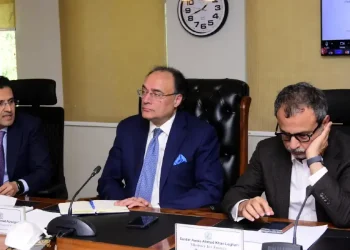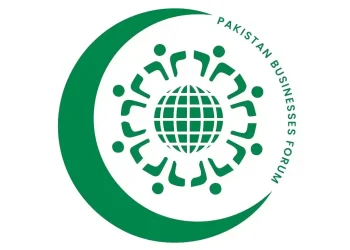KARACHI: Atif Ikram Sheikh, President FPCCI, has said that the policy rate cuts announced over the last two monetary policy meetings are too little, too late as, the business, industry and trade community was expecting higher and substantive cuts in the key policy rate; instead of the meagre 150 bps cut in June 10 monetary policy meeting and 100 bps cut in July 29 meeting.
Atif Ikram Sheikh apprised that the expectations of the business community stem from the massive decline in core inflation; and, the core inflation is the parameter which really matters vis-à-vis interest rate.
The core inflation is within 11.8 – 12.6 percent for the past many months. So, there is a huge room for immediately cutting down policy rate, he added. He reiterated his stance that cost of doing business; ease of doing business and access to finance in Pakistan is at the lowest as compared to all its competitors in the export markets. We cannot continue to have a monetary policy on a huge premium to core inflation, he added.
FPCCI President made it clear that interest rate should come down to 15 percent immediately to enable Pakistani exporters to some extent to compete in the regional and international export markets through reducing the cost of capital in a meaningful way.
This step should be accompanied by the fulfillment of government’s promise to rationalize electricity tariff for the industry; and, renegotiating independent power producers (IPPs) power purchase agreements (PPAs), he added.
Atif Ikram Sheikh, as President FPCCI, the apex trade & industry body of Pakistan, has questioned the seriousness of government, on behalf of the entire business, industry and trade community of Pakistan, in bringing transparency & consultation in the economic policymaking; and, has reiterated his stance that the government should provide answers to the two sets of questions for businesses to plan their year ahead: (i) what are the measures that are being undertaken to obtain the new IMF program and how would they affect cost of doing business in Pakistan (ii) what steps will be taken after the signing of IMF program to stabilize the economy and how & when the government plans to take the business community into confidence on these measures.
FPCCI Chief proposed that to promote price stability, FPPCI emphasizes that the SBP needs to break the inflation rate into cost-pushed and demand-pulled. It is recommended that the SBP should target core inflation; non-food non-energy (NFNE); for operational guidance.
The SBP needs to strip out volatile changes in particular prices to distinguish inflation from temporary fluctuations in inflation. Efforts need to be made to control price manipulation and hoardings in liaison with the respective federal and provincial government departments.
An active and efficient Competitive Commission of Pakistan (CCP) and effective price control mechanisms also need to play their due role.
Nasir Khan, VP FPCCI, said that SBP should focus on core inflation rather than general inflation on an immediate basis as these exclude the most volatile and irrelevant components of the basket; i.e. food and energy, vis-à-vis policy rate.
The government must ensure the effectiveness of price control measures through vigilant actions against hoarding, price gouging and malpractices. He explained that despite the progressive and major hikes in the policy rates from 9.75 percent to 22 percent over a period 6 quarters in 2022 and 2023, general inflation remained stubbornly-high and didn’t respond to the policy rate.
Copyright media, 2024










 American Dollar Exchange Rate
American Dollar Exchange Rate